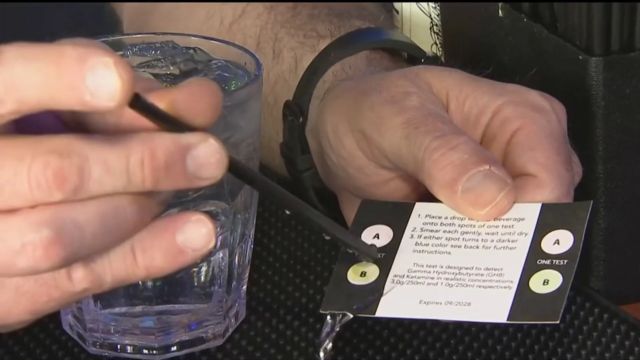Several bars in California will have to provide drug testing kits -Effective July 1
Beginning July 1, California’s nightlife scene will see a significant safety upgrade aimed at protecting patrons from the perils of drink spiking. In a landmark move by the California Department of Alcoholic Beverage Control (ABC), establishments holding a type 48 license, predominantly bars and nightclubs, will be mandated to provide drug testing kits.
This initiative stems from the enactment of Assembly Bill 1013, a regulation designed to bolster the security and well-being of individuals seeking entertainment within these venues.
Assembly Bill 1013 addresses a growing concern surrounding the clandestine issue of date rape drugs, colloquially known as “roofies.” These substances, when surreptitiously added to drinks, can incapacitate individuals, leaving them vulnerable to assault or theft. The new law aims to empower patrons by equipping them with the tools necessary to verify the safety of their beverages.
A type 48 liquor license, central to this new mandate, is assigned to establishments that offer beer, wine, and distilled spirits for on-site consumption. Notably, these venues are not obliged to provide food services. The upcoming regulation underscores the critical role these establishments play in safeguarding their clientele against the dangers of drink tampering.
Furthering its commitment to consumer safety, the law stipulates that these businesses must conspicuously display signage alerting patrons to the availability of the drug testing kits. An illustrative example provided by the ABC articulates a clear and cautionary message: “Don’t get roofied! Drink spiking drug test kits available here.
Ask a staff member for details.” This directive ensures that guests are not only aware of the risks but are also informed of the preventive measures at their disposal.
The implementation of this law is poised to affect approximately 2,400 businesses across California. These establishments are responsible for procuring the necessary kits, which may include a variety of forms such as test strips, stickers, or straws.
Additionally, while the legislation permits venues to charge for the kits, it emphasizes that the cost should not exceed a “reasonable amount,” thereby ensuring accessibility for all patrons.
Non-compliance with these provisions carries significant repercussions for the licensees, potentially impacting their operational status. This underscores the law’s strict stance on the importance of adhering to safety regulations aimed at protecting public health.
The introduction of Assembly Bill 1013 represents a pivotal step forward in the ongoing battle against the covert dangers that can lurk in social settings. By mandating the availability of drug testing kits, California sets a precedent in nightlife safety, offering a model that could inspire similar initiatives nationwide.
This measure not only empowers individuals to safeguard their own well-being but also places a renewed emphasis on the responsibility of nightlife establishments to foster a secure environment for their patrons.











